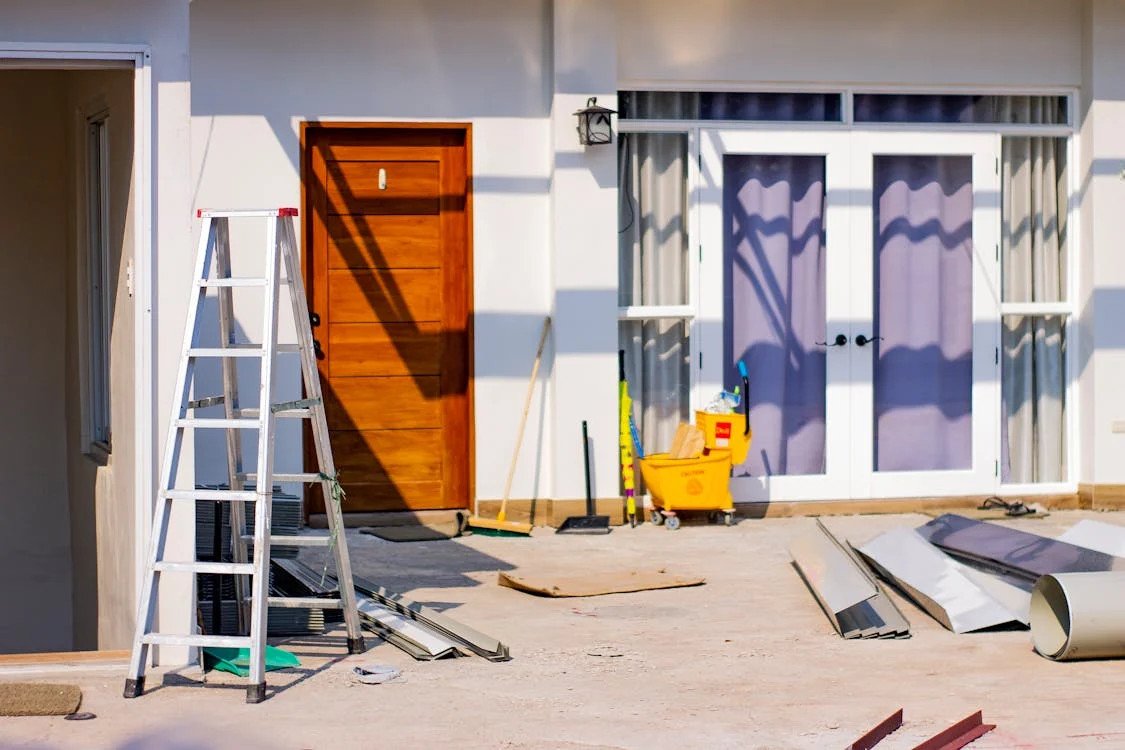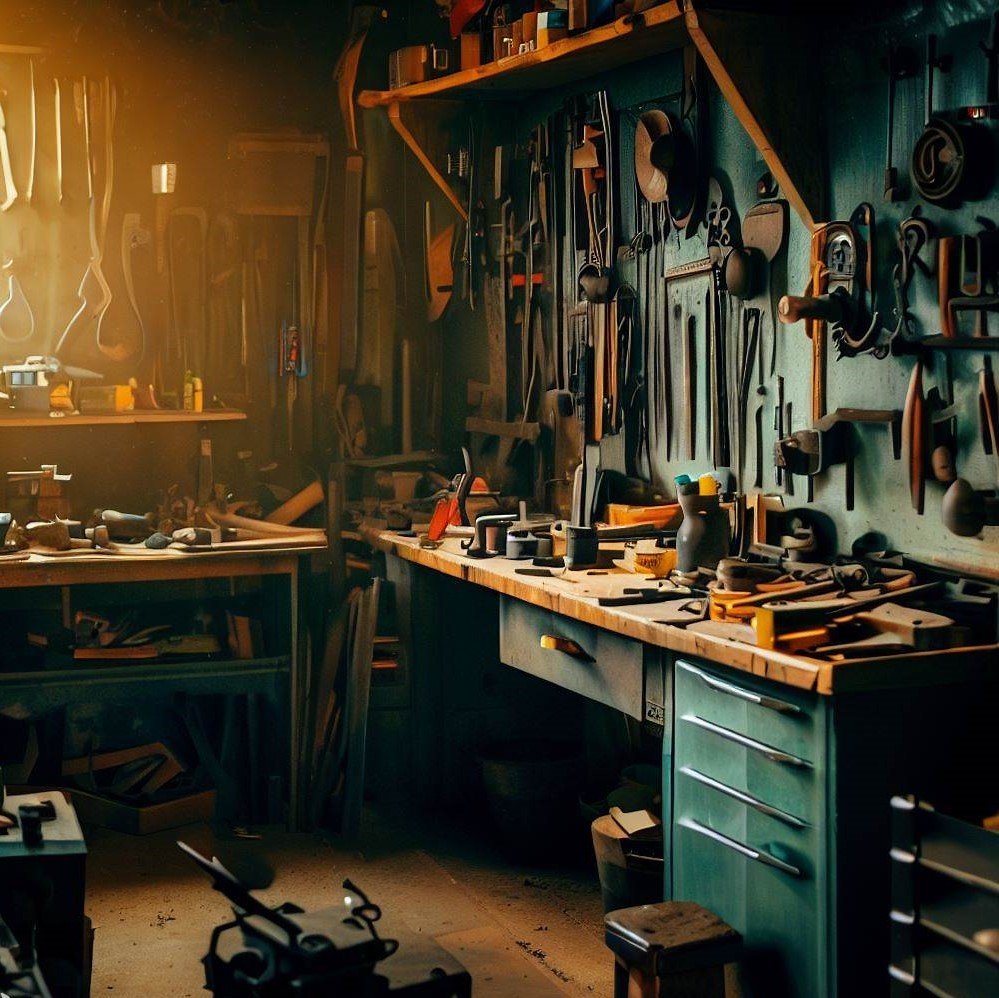DIY Plumbing: When to Tackle it Yourself vs. Calling a Pro
Learn when to tackle DIY plumbing projects and when to call a professional. Get tips on assessing the complexity of plumbing tasks to make informed decisions for your home.
In recent years, DIY home improvement projects have enjoyed a significant surge in popularity. Many homeowners are eager to roll up their sleeves and get their hands dirty from carpentry to electrical work. Plumbing is no exception. While taking on small plumbing tasks can be a fantastic way to save money, knowing your limitations is crucial. Mistakes can lead to costly repairs and significant water damage. This article will guide you through determining when to tackle plumbing issues yourself and when it's best to call in a professional. The ultimate goal is to help you save money while avoiding potential pitfalls.
Understanding Basic Plumbing Tasks
Many basic plumbing tasks are straightforward and can be managed with a bit of know-how and the right tools. For instance, fixing a leaky faucet, unclogging drains, and replacing showerheads are all tasks within the average homeowner's reach.
To get started, ensure you have a few essential tools and materials on hand. Basic necessities include a pipe wrench, plunger, plumber's tape, and an adjustable spanner. Safety goggles, gloves, and a bucket are also useful for protecting against and managing water spills.
When tackling these simpler jobs, safety should always be paramount. Begin by turning off the water supply to avoid unnecessary flooding. Following step-by-step instructions, whether found online or through other reliable sources, can guide you effectively. For a leaky faucet, start by disassembling the faucet, replacing worn-out washers or seals, and reassembling carefully. Simple! Unclogging a drain typically involves a plunger or a drain snake. With a bit of persistence, most blockages can be dislodged. Replacing a showerhead is often as simple as unscrewing the old one and attaching the new one. Just ensure it’s sealed properly to avoid leaks.
When DIY Plumbing Is a Good Idea
How do you determine if a plumbing task is within your capabilities? Start by assessing the complexity of the problem. Small, manageable issues like minor leaks, clogs, or replacing fixtures are generally good candidates for a DIY approach.
The cost benefits of handling such tasks yourself are evident. You'll save on the service fee typically charged by plumbers for minor repairs, and you only need to invest in the necessary tools and materials, which can often be reused for future projects. Additionally, undertaking DIY plumbing projects allows you to learn new skills and become more self-reliant. There’s satisfaction in solving a problem yourself, which also builds confidence to tackle future tasks.
Suppose you've decided a task is within your scope. In that case, it's useful to follow a structured approach. Begin by identifying the issue and gathering information on how to resolve it. Resources such as online tutorials, home improvement books, and DIY forums can provide invaluable guidance. For example, replacing a toilet handle involves removing the old handle, fitting the new one, and securing it tightly. With attention to detail and patience, such tasks are generally quite successful.
Risks of DIY Plumbing Projects
Despite the potential benefits, DIY plumbing also comes with risks. Incorrectly performed repairs can exacerbate the problem, leading to more extensive and expensive damage. For example, a minor leak left unchecked can result in water damage to floors, walls, and even the foundation of your home.
Hidden costs can also arise from unforeseen complications. Suppose a DIY repair goes wrong and causes additional damage. In that case, you may end up spending more on professional repairs than if you had called a plumber initially. Additionally, purchasing all the necessary tools for a one-off job can sometimes exceed the cost of hiring a professional.
Health and safety should not be overlooked. Plumbing work often involves handling heavy tools, working in cramped spaces, and exposure to hazardous chemicals. Without proper precautions, these situations can lead to injuries.
Furthermore, it’s crucial to understand that plumbing work often must comply with local codes and regulations. Failure to adhere to these standards not only risks further damage but can lead to potential legal issues, particularly if you plan to sell your home in the future.
Signs You Should Call a Professional Plumber
Identifying when a plumbing issue is too complex or hazardous is vital for avoiding costly mistakes. Some common red flags indicating the need for expert intervention include persistent clogs, low water pressure throughout the house, or foul odours emanating from drains. These issues often stem from deeper problems within your plumbing system that require professional tools and expertise to diagnose and fix.
The decision of when to call a plumber involves issues like gas lines, significant leaks, or sewer issues. These tasks can be dangerous, and improper handling can result in severe property damage and health risks. For instance, fixing a gas line issue incorrectly can lead to dangerous gas leaks or even explosions.
Professional plumbers can provide long-term solutions and help prevent future issues. They have the training and experience to identify the root cause of complex problems and ensure repairs are thorough and compliant with regulations. This, in turn, helps maintain the safety and integrity of your home’s plumbing system.
Finding the Right Professional for the Job
When you’ve determined that it’s time to call in a professional, selecting a qualified plumber is essential. Start by ensuring they are licensed and insured, which indicates they meet industry standards and are protected in case of accidents.
Asking the right questions before hiring a plumber can give you confidence in your choice. Inquire about their experience, the scope of their services, and their pricing structure. Understanding how they charge—whether it's a fixed rate or an hourly fee—can help you budget appropriately.
Reading online reviews and getting referrals from friends or family can provide insight into the plumber's reliability and quality of work. Look for consistent positive feedback and check if any complaints were resolved satisfactorily. Clear communication with your chosen plumber is crucial. Ensure you understand the costs involved, the expected time frame for the job, and any potential contingencies. A good plumber will be transparent about these details and keep you informed throughout the process.
Conclusion
Knowing when to take on a plumbing task yourself versus calling a professional is key to maintaining an efficient and safe home. While DIY plumbing can save money and provide learning opportunities, it's crucial to assess the complexity and potential risks.
Summing it up, minor issues like fixing leaky faucets, unclogging drains, and replacing fixtures are generally manageable for homeowners. However, more complex problems, especially those involving gas lines, significant leaks, or persistent issues, should prompt you to seek professional help. Prioritising safety and long-term effectiveness ensure your home’s plumbing remains in top condition.
Balancing DIY enthusiasm with professional expertise is essential to managing plumbing needs effectively. Make informed decisions, and you’ll enjoy a functional, safe, and well-maintained home for years.








